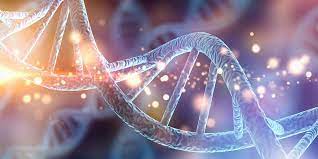Genetics Conferences

GENETICS & MOLECULAR BIOLOGY:
Genetics and molecular biology are two closely related fields that are concerned with understanding the structure, function, and organization of genes and their expression in living organisms. In this blog, we will explore some of the key concepts and applications of genetics and molecular biology.
Genes and DNA
Genes are the basic units of heredity and are made up of DNA (deoxyribonucleic acid). DNA is a long, double-stranded molecule that contains the genetic instructions for the development and function of living organisms. The sequence of nucleotides (the building blocks of DNA) determines the sequence of amino acids in proteins, which are the molecular machines of life. The human genome, which is the complete set of genetic instructions for a human being, is made up of around 3 billion base pairs of DNAS.
Genetic Variation
Genetic variation refers to differences in the DNA sequence between individuals. This variation can occur due to mutations (changes in the DNA sequence), genetic recombination (the shuffling of genes during meiosis), and other genetic processes. Genetic variation can have important implications for the health and development of individuals, as well as for the evolution of species.
Molecular Biology Techniques
Molecular biology techniques are the tools used by scientists to study the structure and function of genes and their expression in living organisms. These techniques include DNA sequencing, PCR (polymerase chain reaction), gene cloning, and gene expression analysis. These tools allow scientists to study the molecular mechanisms that underlie biological processes and to develop new therapies for genetic diseases.
Gene Therapy
Gene therapy is a promising new approach to treating genetic diseases. It involves introducing a functional copy of a gene into the cells of an individual with a genetic disorder in order to correct or replace the defective gene. Gene therapy has shown promise in treating a range of genetic disorders, including cystic fibrosis, sickle cell anaemia, and muscular dystrophy.
CRISPR-Cas9
CRISPR-Cas9 is a revolutionary new molecular biology technique that allows scientists to edit genes with unprecedented precision. It works by using a guide RNA to target specific sequences of DNA, and then using the Cas9 enzyme to cut the DNA at that location. This technique has the potential to revolutionize the treatment of genetic diseases and to improve our understanding of the genetic basis of disease.
Genomics
Genomics is the study of the entire set of genes (the genome) in an organism. This field has been revolutionized by the development of DNA sequencing technologies, which have made it possible to sequence the entire genome of an organism in a matter of days or weeks. Genomics has important applications in medicine, agriculture, and environmental science.
Conclusion
Genetics and molecular biology are two fields that have transformed our understanding of the structure and function of genes, as well as their expression in living organisms. These fields have led to important advances in the diagnosis and treatment of genetic diseases, as well as in our understanding of the genetic basis of human health and disease. The continued development of molecular biology techniques and the study of genomics promise to revolutionize our understanding of the living world and to improve our ability to treat and prevent disease.